France Calls For Return Of Sanctioned Iranian, Venezuelan Oil To Markets
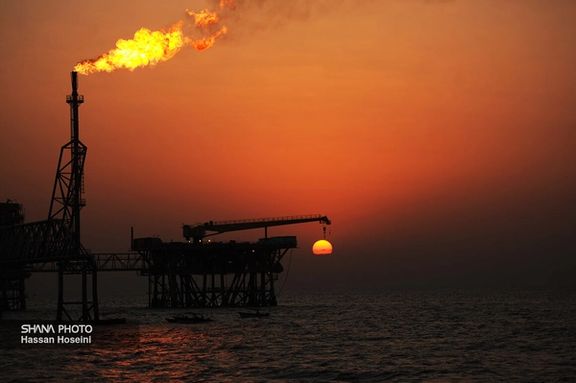
France has called for the return of sanctions-hit Iranian and Venezuelan crude to world markets to reduce the impact of declining Russian supplies on rising energy prices.

France has called for the return of sanctions-hit Iranian and Venezuelan crude to world markets to reduce the impact of declining Russian supplies on rising energy prices.
As Group of Seven (G7) leaders are discussing the viability of a price limit on Russian oil on the second day of their meeting at Schloss Elmau in the Bavarian Alps on Monday, a French presidency official said that France wants a planned mechanism to cap the price of oil to be as broad as possible and not be limited to Russian output.
While the leaders adopted a declaration pledging to support Ukrainian President Volodymyr Zelenskiy and his government “for as long as it takes,” Zelenskiy told G7 leaders that the conditions were not right to negotiate with Russia and wanted to be in a position of strength before began any negotiations.
On Sunday, France announced that G7 leaders will discuss the prospect of reviving the Iran nuclear talks after the European Union's foreign policy chief met senior officials in Tehran.
Discussions took place on Sunday at a dinner between the G7 leaders with more detailed talks scheduled for Tuesday morning between France, Britain, Germany and the United States.
The three European powers are parties to the nuclear deal, which then-US President Donald Trump pulled out of in 2018.
The pact appeared close to being revived in March after 11 months of talks, when the process came to a halt. Tehran insisted that Washington remove the Revolutionary Guard (IRGC) from the US Foreign Terrorist Organization list. Iran's indirect talks with the United States will resume soon in Qatar.

Iran said Monday that Washington has given assurances it will carry out the 2015 nuclear deal and UN resolution 2231 and will “consider” Iran’s economic benefits.
Iran agreed on Saturday [June 25] to resume nuclear talks with the United States after the European Union’s foreign policy chief Josep Borrell visited Tehran and held talks to restart stalled nuclear negotiations.
Foreign ministry spokesman Saeed Khatibzadeh speaking at his weekly media briefing thanked Borrell and said, “We confirm that there have been agreements regarding the format, essence and topics” for the new round of talks. “The most important aspect of the talks was that America has given assurances to act based on the entirety of the JCPOA and issues covered by resolution 2231, taking into account Iran’s [expected] economic benefits” from a renewed nuclear agreement.
Khatibzadeh also seemed to hedge Iran’s bets, saying, “We must wait and see if the Americans will part with Trump’s legacy and Borrell’s messages become a reality. We will continue the talks with seriousness and decisiveness with the caveat of not fully trusting America.”
Year-long talks in Vienna came to a sudden halt in March after diplomats said that a draft agreement was 99 percent ready to restore the Joint Comprehensive Plan of Action (JCPOA). The sticking points apparently revolved around Iran’s demand that the US should lift all sanctions imposed by former President Donald Trump when he withdrew from the deal in 2018.
However, many sanctions, including the designation of Iran’s Revolutionary Guard (IRGC) as a terrorist organization were not directly related to Iran’s nuclear program and the Biden Administration has so far not accepted Tehran’s demands.
Lately, Tehran has reportedly argued that the demand to remove sanctions related to terrorism is because they would prevent full economic benefits for Iran even if the nuclear deal is restored. Khatibzadeh’s statement that the US has accepted to consider Iran’s “economic benefits” points to Tehran accepting a promise from Washington, rather than a formal removal of all sanctions.
Some observers in Iran have suggested that perhaps the issue of remaining sanctions and other differences will be dealt with after the JCPOA is restored through additional talks.
Iran’s regional aggressive behavior and its missile threat are long-standing problems that the United States and its regional allies are keen to address. The lifting of terrorism and other sanctions could evolve into a new round of talks aimed at Iran’s overall foreign and military policies.
The new talks Borrell agreed with the Iranians seem indeed to differ from the Vienna format. The talks, which Khatobzadeh said will start in a few days, are slated to take place not in Vienna but in a Persian Gulf country, most likely Qatar.
Although many details are still unclear, the talks will not take place with the direct participation of Russia and China as was the case in Vienna. It is not clear if the United Kingdom, France and Germany, as European signatories of the JCPOA will be present or only the EU will mediate in what would be indirect talks, as Iran still refuses to negotiate with the US face to face.
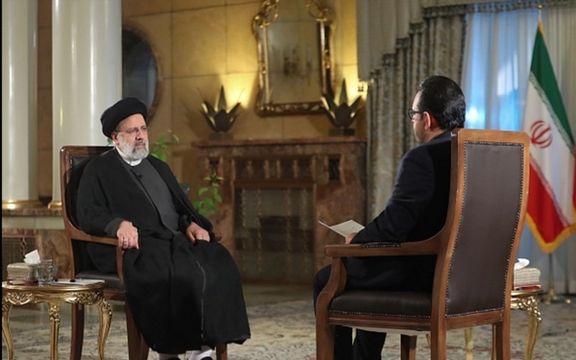
Iran's President Ebrahim Raisi, facing serious economic challenges, gave his 6th interview in 10 months to the state television Saturday evening, June 25.
During the interview, Raisi defended his government's problematic economic performance and blamed the previous government and "conspiracies hatched by the enemies," for the country's mounting problems.
According to the official news agency, IRNA, Raisi said that his government has repaid the previous government's 290 trillion rial (around $1.2 billion) debt to the banks within only 20 days after he took office. He added that very little fund in foreign currency was left at the treasury by the end of the previous government's term of office. He also claimed that the "economic reform" he is pursuing should have been implemented under the government of President Hassan Rouhani.
Meanwhile, he blamed foreign conspiracies and the previous government's performance for the financial crisis Iranians are facing today.
One news website commented that the interview was not really an interview. It was a one-sided campaign speech, and the interviewer acted like an employee, referring to the state televsion fully at the service of the government.
In an interview with Nameh News website, Iranian economic analyst Albert Boghosian said Raisi's remarks on the state TV were not convincing. Boghosian added that Raisi's promise about tackling Iran's rising inflation within a short period of time was unrealistic, and that the people were right not to believe him.
He said it was not clear if the President meant that prices would come down after a while, or as is more likely, he meant that there will be no further increases.
Raisi’s government abolished food import subsidies in early May that led to an immediate jump in prices. The point-to-point inflation rate for May-June jumped 55 percent to the same period in 2021. The government called its decision “economic surgery.”
Boghosian added that Iranians were not prepared for Raisi's 'economic surgery’ and likened the resident's move to building a house while ignoring that the operation will lead to the collapse of neighboring buildings. The economist said ironically that Raisi has performed the surgery but there is no one around to take care of the patient's recovery.
He warned that Iran is in a situation that even stabilizing the prices are not acceptable and there should be a reduction in inflation. "People cannot wait…hoping that prices will hopefully come down in six months," he said.
In another development, moderate-conservative news website Khabar Online asked its readers whether Raisi's remarks were convincing. Most of the comments sent to the website were negative. One reader said: "It was disappointing. He did not say anything new." Another reader wrote: "Raisi's comments about the banking system, inflation, prices, and housing did not make sense." Still, a third reader commented that "The honorable president did not accept responsibility for his cabinet's performance and blamed the previous government and sinister elements. Generally, he did not convince anyone."
Economic journalist Ebrahim Alizade wrote in series of tweets on Sunday: "Why did Raisi took part in this interview? Was he trying to calm the people? He kept promising that the situation is going to get better but did not talk about the parliament's plans to further increase prices."
In the meantime, reports from the Iranian parliament (Majles) say the process has been completed for the impeachment of Industry Minister Reza Fatemi Amin while motions have been also tabled to impeach the ministers of Agriculture, Interior, and Roads and Housing.
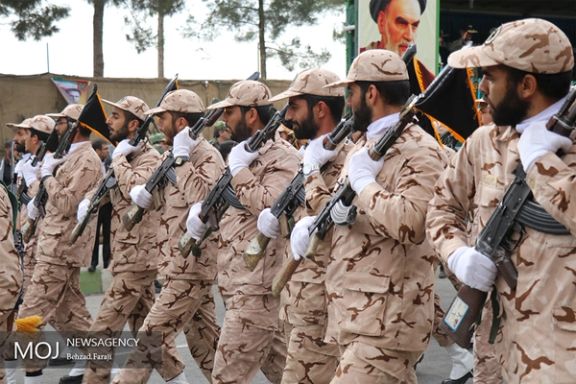
The Biden admin has decided to lift a ban on the entry into the US for Iranian men who have been conscripted into the Revolutionary Guard as part of their compulsory military service.
According to a notice issued on June 23, the Secretary of Homeland Security and the Secretary of State, following consultations with the US Attorney General, have determined that the ban shall not apply with respect to an individual who provided insignificant or limited material support to a Foreign Terrorist Organization (such as IRGC) under routine social transactions, as they do not “pose a national security or public safety risk.” The decree did not mention Iran or the IRGC.
Provided that the individual satisfies the relevant agency authority that he did not voluntarily and knowingly engage in terrorist activity on behalf of a designated terrorist organization, they are not barred from admission to the United States and from obtaining immigration benefits or other status.
The individual should also prove that he/she has not provided the material support with any intent or desire to assist any terrorist organization or terrorist activity; or any support directly be used to engage in terrorist or violent activity; or support for targeting noncombatant persons, US citizens, or US interests, the decree said.
The United States designated the IRGC as a “Foreign Terrorist Organizations” in 2019 as part of the “maximum pressure” campaign that then-President Donald Trump imposed on Iran after pulling out of the 2015 nuclear deal.
According to multiple reports, Iran is demanding lifting of US sanctions on the IRGC and its affiliates before it agrees to revive the 2015 nuclear deal known as JCPOA.
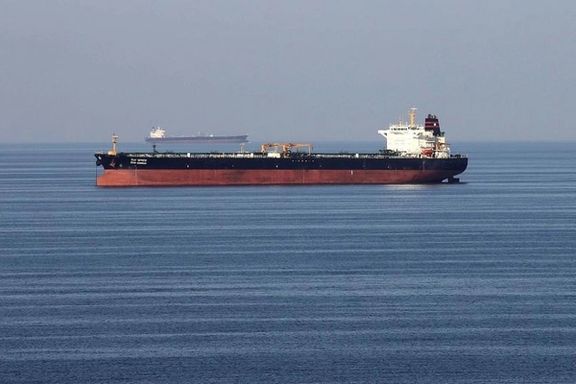
Advocacy group United Against Nuclear Iran (UANI) says two Iranian tankers are unloading their cargoes at the Baniyas Single Buoy Mooring (SBM) and a third is on its way to the port.
UANI Chief of Staff Claire Jungman published the photo of the tankers in a tweet on Friday explaining that Iranian tankers Daran and Golroo are discharging at the Baniyas SBM, while Arman 114 is engaged in an STS transfer with Traden, which is sailing under the flag of Cameroon after repairs in Turkey earlier this year.
In order to avoid detection of the destination of its cargo, Iran usually uses ship-to-ship transfers, in which the vessels turn off their transponders at the sea and secretly transfer oil cargo.
According to data by the UANI, Syria is the second largest importer of the Iranian oil after China. The Islamic Republic delivered more than 111,000 barrels of oil per day to Syria in the previous month.
It is not clear whether or how Iran is being paid for the shipments, whose value only for the month of May is over $400 million with current oil prices.
Earlier in the month, UANI called on six Chinese banks to end all financial transactions with Iran.
As part of ‘maximum pressure’ sanctions introduced in 2018 on leaving the 2015 Iran nuclear deal, US President Donald Trump signed an executive order threatening punitive US action against any third party dealing with Iran’s financial sector.

Data released by Tehran show the economy has grown more than 4 percent over the last year, driven by high oil prices and loose enforcement of U.S. sanctions.
This relatively strong economic growth can partially explain Tehran’s current stonewalling of nuclear negotiations with the Biden administration, as Supreme Leader Ali Khamenei likely does not feel massive pressure to secure sanctions relief by striking a deal. If Washington were to reinvigorate its sanctions enforcement, however, it could reverse the Islamic Republic’s economic fortunes, stoke political instability within Iran, and pressure Khamenei to surrender.
According to Iran’s Statistics Center, the country’s GDP grew by 4.3 percent during the Persian calendar year 1400 (April 2021 to March 2022). The growth rate in the previous year was one percent. Almost all major sectors of the economy grew. Oil and gas saw the fastest growth rate, at 9.7 percent. The service sector, the largest sector of Iran’s economy, grew by 4.5 percent after having shrunk by 1.3 percent the previous year. This growth, however, does not mean that the economy is doing well. The real GDP is still below its March 2018 level, the point-to-point inflation was 52.5 percent in June, and the country faces daily protests and strikes over low wages and high inflation.
Several factors explain this higher growth. First, since taking office in January 2021, President Joe Biden has abandoned his predecessor’s policy of “maximum pressure” against Iran, leading to loose enforcement of U.S. sanctions against the Islamic Republic. Iran exported $48 billion worth of non-oil goods during the Persian year of 1400, the most in the country’s history. This trend has continued throughout the first two months of 1401 (April and May 2022), during which time Tehran exported 40 percent more oil year-over-year.
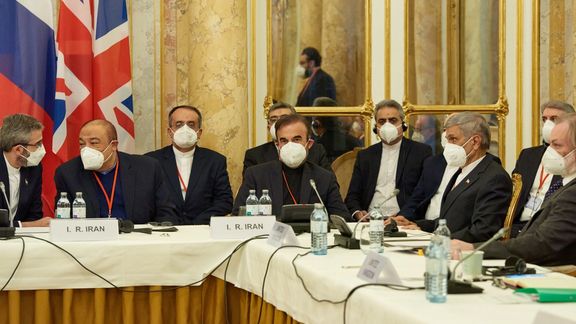
Meanwhile, Iran’s economy has benefited from higher prices of commodities, particularly oil and oil-based goods such as petrochemicals. The Islamic Republic also managed to replace some imported goods by expanding domestic production, in turn boosting Iran’s manufacturing and mining sectors. Finally, the removal of pandemic-related restrictions, combined with public optimism about reaching a deal with the United States to end sanctions, contributed to the growth in the service sector.
Iran’s renewed economic growth likely helps explain why Khamenei is in no rush to reach a nuclear deal with Biden. Loose U.S. sanctions enforcement has allowed Khamenei to reap economic benefits while expanding his nuclear program and eroding Washington’s leverage over Tehran.
Fortunately for the United States, however, Iran’s economy — and thus Khamenei’s negotiating position — remains fragile. If oil prices remain high and U.S. sanctions enforcement remains lackluster, the Islamic Republic could probably achieve 3to 5 percent growth this year. But a U.S. return to “maximum pressure” would likely see Iran’s economy return to meager or negative growth rates.
One sign of this fragility is that Iranian economic growth decelerated toward the end of the year, with GDP growing by just 2.3 percent during the last quarter (spring of 2022) compared to 6.9 percent during the first quarter (winter of 2021). That trend held true across most economic sectors. For example, whereas the oil and gas sector grew by 27.4 percent in the first quarter, its growth rate dropped to 0.5 percent in the fourth quarter. Likewise, the real estate sector grew 15.3 percent in the first quarter but shrank by 3.4 percent in the last quarter.
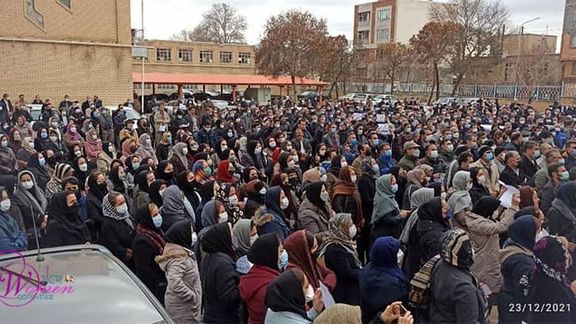
Moreover, the Islamic Republic has suffered from high inflation since late 2018, reducing purchasing power. This means that domestic consumption and demand are fragile. If the Biden administration tightens sanctions enforcement, consumer and investor pessimism will push down investment and consumption. The result will be a slowdown in economic activity and lower or negative GDP growth.
That economic downturn could exacerbate Iran’s ongoing socio-political instability, toppling his regime or increasing Khamenei’s incentive to reach a deal with Washington. Since 2017, the country has faced two waves of massive protests. In November 2019, the regime killed at least 1,500 protesters in less than a week to survive the most widespread protests of its history. Government restrictions and self-imposed isolation during COVID-19 slowed down the protests, but as those impediments faded, protests and worker strikes began again in 2021 and gained momentum in 2022. The protests and strikes now occurring daily across Iran reflect deep societal discontent, which can both signal and create economic troubles.
If the Biden administration continues with the status quo, it can expect Tehran to continue stonewalling, eliminating any chance of reaching an acceptable nuclear deal. Conversely, reviving maximum pressure could force Khamenei to play ball. With the Islamic Republic edging closer and closer toward a nuclear weapon, Biden doesn’t have any time
Saeed Ghasseminejad, who contributed this opinion article is a senior advisor on Iran and financial economics at the Foundation for Defense of Democracies (FDD), where he contributes to FDD’s Iran Program and Center on Economic and Financial Power (CEFP). Follow Saeed on Twitter @SGhasseminejad. FDD is a Washington, DC-based, non-partisan research institute focusing on national security and foreign policy.
The opinions expressed by the author are not necessarily the views of Iran International.